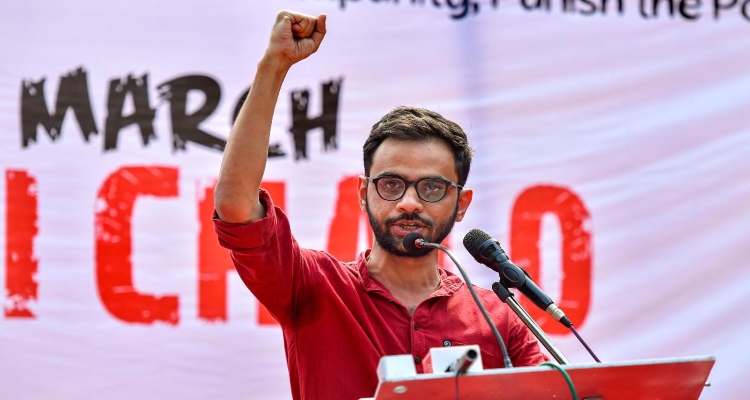
The Delhi High Court on Thursday scheduled the hearing of former JNU student Umar Khalid’s bail plea for October 7. Khalid is facing charges under the anti-terror law UAPA in connection with the alleged larger conspiracy behind the communal riots that broke out in the national capital in February 2020.
A bench of Justice Suresh Kumar Kait and Justice Girish Kathpalia also set the same date for hearing the pending bail applications of student activist Sharjeel Imam, ‘United Against Hate’ founder Khalid Saifi, and other co-accused in the case.
Senior counsel representing Umar Khalid informed the court that the Delhi Police had yet to file a response to the bail petition, despite a notice being issued on July 24.
The division bench directed the parties to submit written submissions in the matter instead.
“Renotify on October 7. Parties are directed to file written submissions within two weeks,” the bench ordered.
Khalid, who was arrested by the Delhi Police in September 2020, has challenged a trial court order that refused to grant him bail in the case.
Umar Khalid, Sharjeel Imam, and several others have been charged under the Unlawful Activities (Prevention) Act (UAPA) and various provisions of the Indian Penal Code for allegedly being the “masterminds” behind the February 2020 riots, which resulted in 53 deaths and over 700 injuries.
The violence erupted during protests against the Citizenship Amendment Act (CAA) and the National Register of Citizens (NRC).
The trial court, on May 28 dismissed Khalid’s second plea for regular bail, stating that its previous order dismissing his first bail application had reached finality.
“When the Delhi High Court has already dismissed the criminal appeal of the applicant (Khalid) via order dated October 18, 2022, and thereafter, the applicant approached the Supreme Court and withdrew his petition, the order of this court passed on March 24, 2022 (on the first bail plea), has attained finality. Now, under no stretch of the imagination can this court reanalyze the facts of the case as desired by the applicant and consider the relief he has requested,” the trial court noted.
On October 18, 2022, the High Court upheld the rejection of Sharjeel Imam’s first bail plea, agreeing with the city police’s allegations against him as being prima facie true. The court noted that the anti-CAA protests had “metamorphosed into violent riots,” which, according to the evidence, appeared to have been orchestrated during conspiratorial meetings, with witness statements pointing to Imam’s active involvement in these protests.
Sharjeel Imam has challenged an April 11, 2022 trial court order that denied him bail, filing his appeal in 2022. The Delhi Police, who arrested Imam on August 25, 2020, opposed the bail request, arguing that he mobilized individuals from the minority community and promoted the use of chakka jam (road blockades) as a disruptive tactic, leaving “no window for peaceful protest.” The police further alleged that these protests were part of a larger conspiracy aimed at inciting violence during the visit of then-U.S. President Donald Trump, with Imam advocating for chakka jam in his public speeches as a strategy to paralyze the government.




